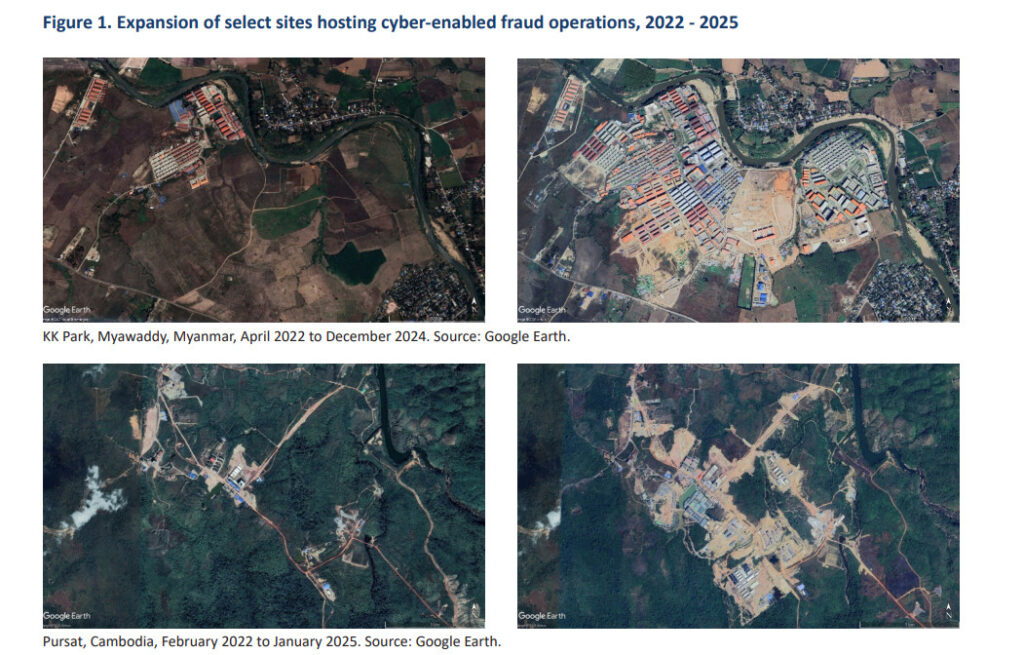A UN agency has warned that major international crime groups have infiltrated casino and betting operations in Southeast Asia.
The warning was published in a report from the United Nations Office on Drugs and Crime (UNODC) entitled Inflection Point: Global Implications of Scam Centres, Underground Banking, and Illicit Online Marketplaces in Southeast Asia.
In the report, the UNODC noted that criminals are responding to governments’ efforts to fight cyberfraud and scam centres in the region by flocking to the area en masse.
UN: Casino Regulation Needed to Prevent Further Issues
The report also reiterated previous UN claims about links between illegal gambling operators and human trafficking in the SEA region.
This, the UNODC wrote, means criminal groups are rapidly outpacing the capacity of governments to contain them. The authors explained: “The region has emerged as a key testing ground for organized crime. […] A potentially irreversible spillover has taken place in Southeast Asia, leaving criminal groups free to pick, choose, and move jurisdictions, operations, and value as needed.”
The agency has seen evidence that fraudsters are now processing billions of USD worth of illicit capital inflows.
It published images of suspected scam centres that it said have taken on industrial proportions in Southeast Asia. And the UNODC remarked that the days of independent and scattered fraud gangs operating in the region had gone.
Instead, it explained that larger, consolidated criminal groups have replaced these smaller gangs. These bigger groups reportedly operate under the guise of casinos, industrial parks, and hotels.


Border Areas in the Spotlight
The UNODC says the area suffers from key vulnerabilities in its fight against drug trafficking and money laundering. It warned that this was particularly acute “in border regions that have witnessed the growth of casinos and Special Economic Zones.”
The report’s implications could send shock waves through the Southeast Asian casino and gambling sectors.
The UNODC has previously held talks with ministers and senior officials from Cambodia, China, Laos, Myanmar, Thailand, and Vietnam.
This resulted in the nations forming a consensus on the need for a deeper investigation. Officials said they would probe possible connections between casinos and the world of organized crime.
Thai officials at a UNODC-organized event claimed they would begin “an aggressive crackdown on transnational scam networks.”
On April 23, the Thai media outlet Khaosod reported that the Royal Thai Police has launched a special task force. The new force will fight IT crimes and human trafficking in border areas.
Illegal Casino Platforms Powered by Blockchain and AI, UN Warns
In January, the agency warned that illegal online casinos have recently “mushroomed across Southeast Asia.” Growth is particularly high in the Mekong area, it added.
The UNODC claimed that many of the crime groups behind the casinos were using data mining and processing, blockchain technology, and generative AI to power their growth.
The agency also claims that transnational organized crime groups operate in various other regions, including the Pacific. The UNODC said that the groups create footholds by developing casinos, hotels, and crypto investment projects.
The report’s authors called for more public education and outreach to help increase the “understanding of the enabling role of casinos, [cryptoassets], and other high-risk sectors.”
The authors also said that governments in SEA needed to develop new legal frameworks to address money laundering, crypto, casinos, and online gambling.
They added that existing laws regulating gambling and crypto would benefit from periodic review and reform.
With organized crime evolving at a rate the region has never seen before, the authors wrote, South East Asia “now stands at a critical inflection point.” They concluded that failure to address these issues would result in “unprecedented and potentially irreversible consequences for Southeast Asia that will be felt globally for years to come.”






